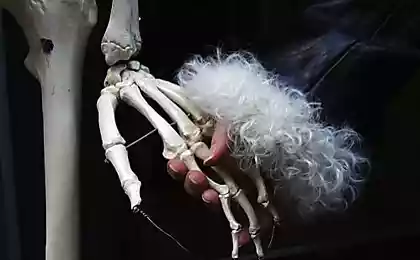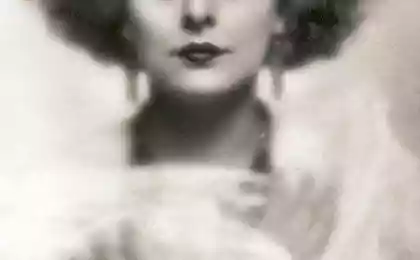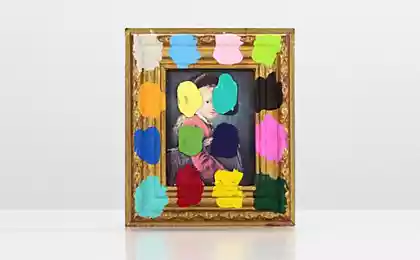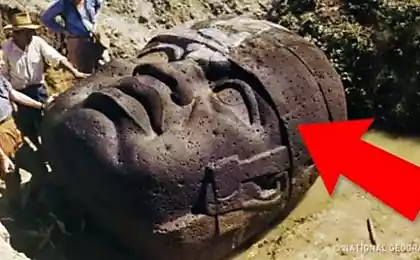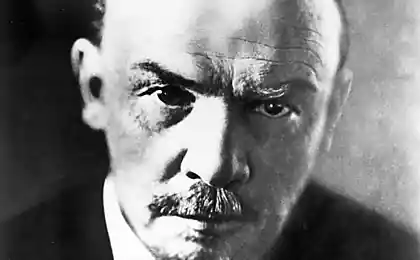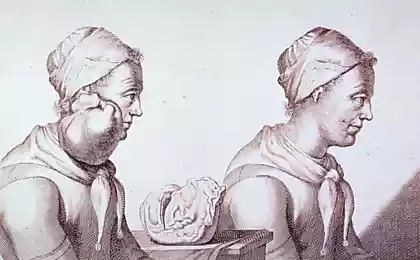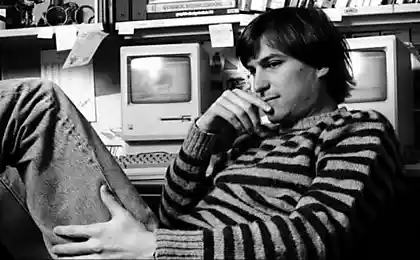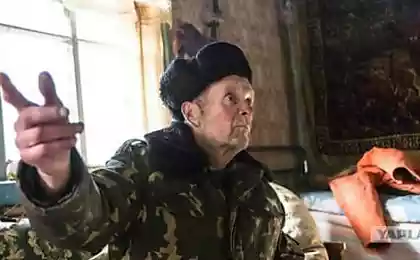1237
The Last of the Nuba
George Roger became the first to have photographed the Nuba tribes people. Among the many fans of his work was Leni Riefenstahl, who had a bad reputation because of the film, which she did by order of Hitler in the early 30s. Riefenstahl photographer offered £ 1,000, so he told her where to find the Nuba. Roger, whose memory still lived the horrors of the concentration camp of Bergen-Belsen, the liberation of which he filmed in 1945, flatly refused the offer. However, persistent Riefenstahl was not going to abandon the project and continued to search for the Nuba tribe, which is very upset Roger George.
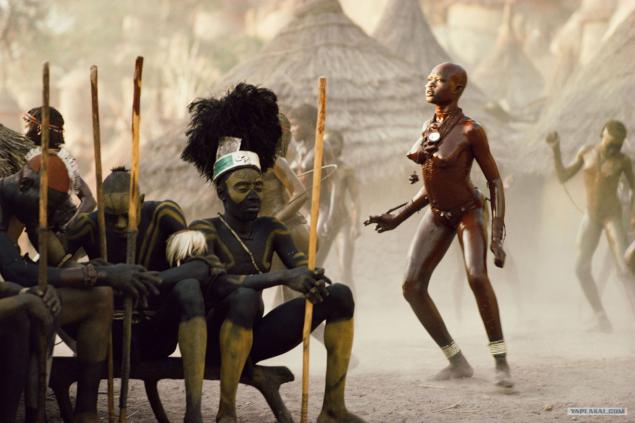
In his book "Farewell to the Nuba," he wrote: "The gradual deterioration of the Nuba tribes began with the publication of glossy and misleading books Leni Riefenstahl in colorful covers that attract tourists and tour operators in the area. In his solitude a million or so people of Nuba could remain intact world. But they opened in the surface of entertaining books in his uncircumcised nudity, and it was more than they could take the Muslim fundamentalists. "
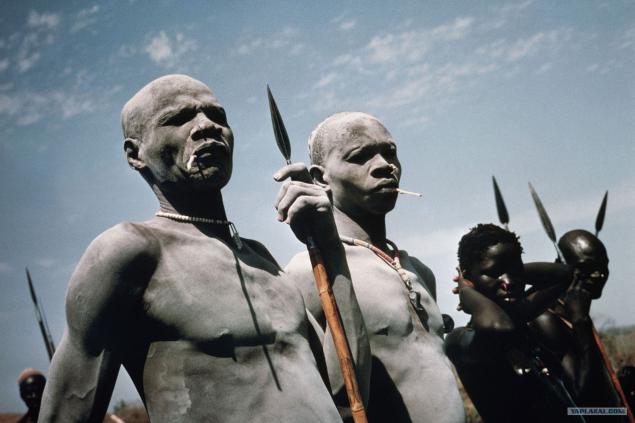
However, the record on the dust jacket of the first book Riefenstahl's "The Last of the Nuba" (1973) marks the merit of works of Roger, who inspired her: "The author was so delighted with the photos made famous British photographer George Rodger [in fact he was a Scot] that Over the years, trying to find the Nuba to study the lives of these primitive people. " Next followed a personal appeal: "Without the impact of your photos & lt; ... & gt; This book would never have been published. Now we're both friends of "our" people of the Nuba. "
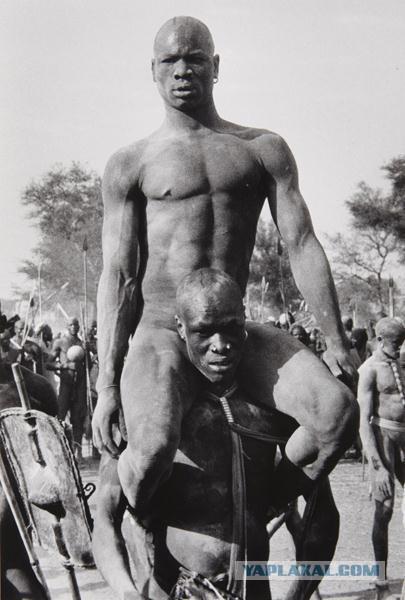
This recording enraged Roger: "It awful lot of insincerity, because I did not help her. Keep in mind, I believe that its highly professional photographs. Certainly, it is a good picture, but there is no heat. My photos were a big part of the family and the people themselves. " This criticism has divided the famous American writer Susan Sontag. In 1974, in his essay entitled "Magic fascism", she wrote that the photographs of the Nuba were "inseparable from the Nazi labor" Riefenstahl. Drawing a parallel with her film "Olympia". Made by the order of the Propaganda Ministry of the Third Reich, he praised the perfection of the human body - the cult of healthy body supported in the Nazi state. Photos of beautiful, physically strong people of the Nuba tribe, Riefenstahl printed in glossy books, widely seen as a continuation of the Nazi aesthetic.
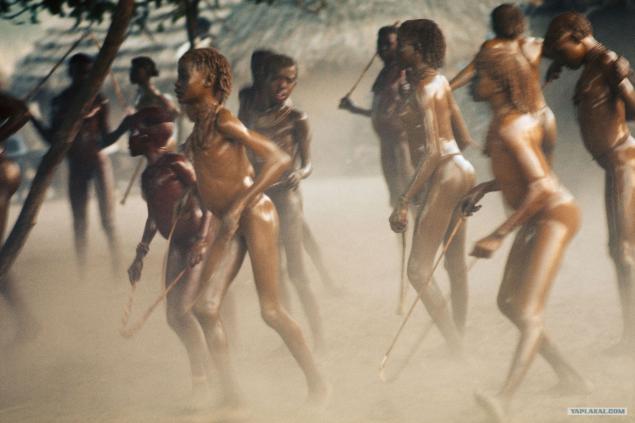
Whatever it was, photos Riefenstahl discovered Kordofan anthropologists, photographers and documentary filmmaker. It also provoked that the predominantly Muslim government of Sudan announced the Nuba way of life offends their religious sensibilities. Subsequent government in Khartoum tried to put the Nuba and put an end to their "primitive" way of life. They also accused the people of this tribe in support of southern Sudanese rebels and supported nomadic and rather aggressive Baggara tribe: they suffered losses due to drought and the development of mechanized farms, and soon with arms seized the fertile Nuba villages.
Leni Riefenstahl, returning to the Nuba after a few years, was shocked by the changes that have happened to them. Previously, she called them the happiest people on earth who did not know vices. Now Nuba had money: due to the reduction of land and crop failures men were forced to go into town and look for a job. It is settled in the village of inequality, envy and theft. Many came from the sexually transmitted diseases. The people of the Nuba tribe were no longer those carefree good savages who at the time George met Roger. They were forced to wear - on memoirs of Leni Riefenstahl, it was pitiful rags. Moreover, they are now ashamed of his past nudity. "They have been told that it is bad" - wrote Frau Leni. Openness and credulity of these people belong to the past. "When there are dark sides of civilization, people's happiness fades" - concluded Riefenstahl.
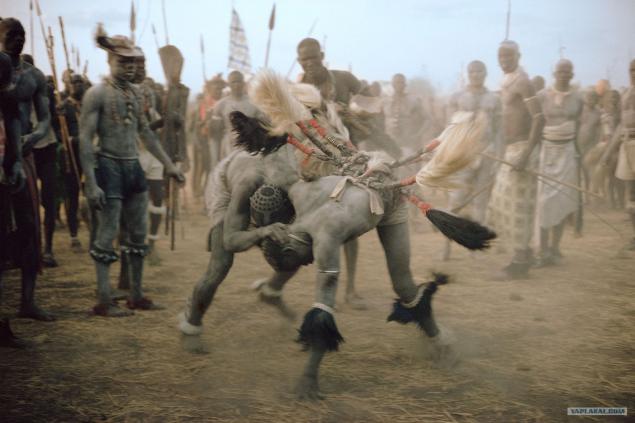
Source:

In his book "Farewell to the Nuba," he wrote: "The gradual deterioration of the Nuba tribes began with the publication of glossy and misleading books Leni Riefenstahl in colorful covers that attract tourists and tour operators in the area. In his solitude a million or so people of Nuba could remain intact world. But they opened in the surface of entertaining books in his uncircumcised nudity, and it was more than they could take the Muslim fundamentalists. "

However, the record on the dust jacket of the first book Riefenstahl's "The Last of the Nuba" (1973) marks the merit of works of Roger, who inspired her: "The author was so delighted with the photos made famous British photographer George Rodger [in fact he was a Scot] that Over the years, trying to find the Nuba to study the lives of these primitive people. " Next followed a personal appeal: "Without the impact of your photos & lt; ... & gt; This book would never have been published. Now we're both friends of "our" people of the Nuba. "

This recording enraged Roger: "It awful lot of insincerity, because I did not help her. Keep in mind, I believe that its highly professional photographs. Certainly, it is a good picture, but there is no heat. My photos were a big part of the family and the people themselves. " This criticism has divided the famous American writer Susan Sontag. In 1974, in his essay entitled "Magic fascism", she wrote that the photographs of the Nuba were "inseparable from the Nazi labor" Riefenstahl. Drawing a parallel with her film "Olympia". Made by the order of the Propaganda Ministry of the Third Reich, he praised the perfection of the human body - the cult of healthy body supported in the Nazi state. Photos of beautiful, physically strong people of the Nuba tribe, Riefenstahl printed in glossy books, widely seen as a continuation of the Nazi aesthetic.

Whatever it was, photos Riefenstahl discovered Kordofan anthropologists, photographers and documentary filmmaker. It also provoked that the predominantly Muslim government of Sudan announced the Nuba way of life offends their religious sensibilities. Subsequent government in Khartoum tried to put the Nuba and put an end to their "primitive" way of life. They also accused the people of this tribe in support of southern Sudanese rebels and supported nomadic and rather aggressive Baggara tribe: they suffered losses due to drought and the development of mechanized farms, and soon with arms seized the fertile Nuba villages.
Leni Riefenstahl, returning to the Nuba after a few years, was shocked by the changes that have happened to them. Previously, she called them the happiest people on earth who did not know vices. Now Nuba had money: due to the reduction of land and crop failures men were forced to go into town and look for a job. It is settled in the village of inequality, envy and theft. Many came from the sexually transmitted diseases. The people of the Nuba tribe were no longer those carefree good savages who at the time George met Roger. They were forced to wear - on memoirs of Leni Riefenstahl, it was pitiful rags. Moreover, they are now ashamed of his past nudity. "They have been told that it is bad" - wrote Frau Leni. Openness and credulity of these people belong to the past. "When there are dark sides of civilization, people's happiness fades" - concluded Riefenstahl.

Source:
